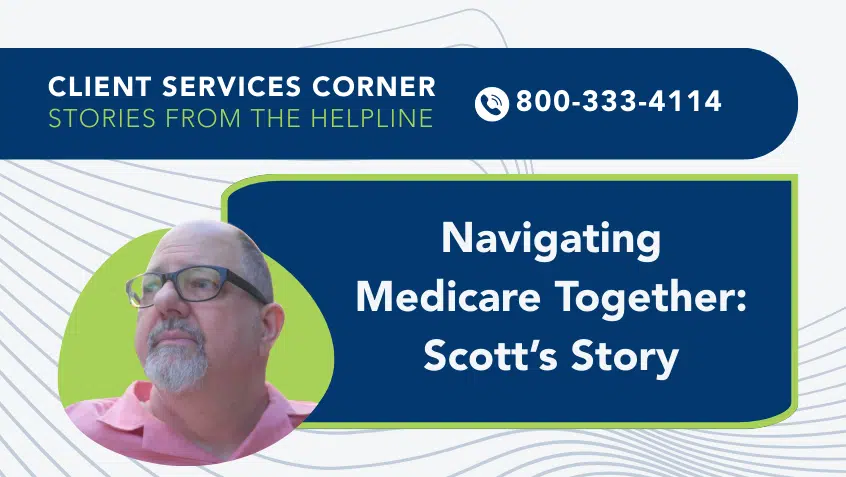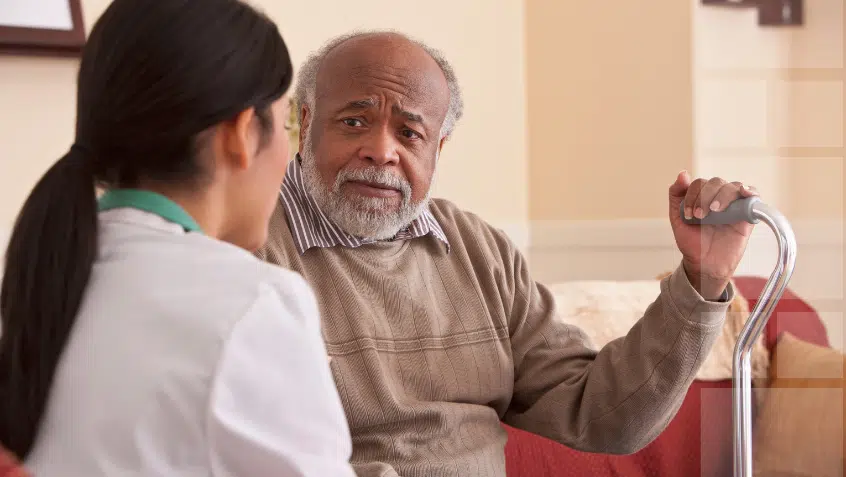Join Us Live for a Discussion on Medicare, Democracy, and the Future of Health Care
Polling Shows Affordability Challenges for Older Adults in Need of Health Care

Gallup has released new polling on health care costs for people 50 or older. They found that older adults, especially those between 50 and 64, face enormous hurdles in affording care. This can lead to many older adults having to sacrifice other basic necessities like food to pay for health care. Others are forced to go without the care and medications they need to stay healthy and safe in their homes.
The polling shows that 72% of adults between 50 and 64 find health care costs a financial burden, with 48% considering it a minor and 24% considering it a major challenge. These numbers go down slightly for those 65 and older, with 51% of that population considering health care costs a minor burden and 15% considering it a major one.
For the 50-64 age range, 45% report they are concerned they will be unable to pay for care and around 30% cut back on basic necessities—food, utilities, clothing, or medication—due to health care costs. For those 65 and over, 37% are concerned that they will be unable to pay for care and around 25% have cut back on basic needs, with women in this age bracket more likely than men to say they have cut back on clothing, over-the-counter drugs, and food.
Around 26% of those 50-64 reported that they or a household member of their household recently did not seek health care treatment because of the cost and an additional 18% reported that they or a family member have skipped prescribed medication to save money. Among those 65 and older, roughly 12% reported avoiding treatment due to cost and 11% reported skipping prescribed pills to save money.
Black Americans are more likely to report trouble affording care and cutting back on basic needs to afford care than whites. For example, Black Americans between 50 and 64 are more likely to report cutting back on utilities (15% vs. 7%), clothing (31% vs. 24%), and over-the-counter drugs (19% vs. 13%).
As Gallup notes, these results come as data show rising out-of-pocket costs for those 65 and older. “U.S. Department of Health and Human Services data show that out-of-pocket healthcare expenses for adults 65 and older rose 41% from 2009 to 2019; out-of-pocket expenses take up a greater proportion of individuals’ expenditures as they age, because of an increase in demand for health services and the reality that Medicare does not cover all health expenses. People 65 and older spend nearly twice as much of their total expenditures on healthcare costs when compared with the general population, even with 94% in this age group being covered by Medicare.”
These polling results are a stark reminder of affordability challenges for older adults. Those who are not yet Medicare eligible face the greatest hardship, but costs are high and continue to rise for those in Medicare. We will continue to urge Congress and the Administration to do more to protect the health, well-being, and financial security of all Americans, with a particular focus on older adults and people with disabilities. We need national strategies to reduce health care costs, including prescription medications, cap out-of-pocket expenses, expand Medicare benefits to ensure needed care is covered, and extend help for more lower income individuals who do not qualify for current assistance programs but cannot afford rising costs.
Read more about capping out-of-pocket costs in Medicare.
Read more about people with Medicare struggling with costs in Part D.
Show Comments
We welcome thoughtful, respectful discussion on our website. To maintain a safe and constructive environment, comments that include profanity or violent, threatening language will be hidden. We may ban commentors who repeatedly cross these guidelines.
Help Us Protect & Strengthen Medicare
Donate today and make a lasting impact
More than 67 million people rely on Medicare—but many still face barriers to the care they need. With your support, we provide free, unbiased help to people navigating Medicare and work across the country with federal and state advocates to protect Medicare’s future and address the needs of those it serves.
The Latest
Most Read
Add Medicare to Your Inbox
Sign up to receive Medicare news, policy developments, and other useful updates from the Medicare Rights.
View this profile on InstagramMedicare Rights Center (@medicarerights) • Instagram photos and videos









